U.S. Air Force Vietnam War Aurora, IL Flight date: 10/06/21
By Wendy L. Ellis, Honor Flight Chicago Veteran Interview Volunteer
Carol Stegall is an independent woman. Beholden to nobody, she knew early on that she wanted a job where she would always be needed. After growing up in an Aurora youth home and spending weekends with her grandmothers, she came out of high school in 1960 with an innate desire to help those who couldn’t help themselves, whether they had two legs or four.
“I don’t remember anything from my childhood, except that I couldn’t have a cat or a dog. I lived in this home, so I was a little nuts,” says Carol. “As soon as I got out of school I got two dogs, and it’s been like that ever since. I rescue cats and dogs.”
She really wanted to be a veterinarian but knew she couldn’t afford the 16 years of school it would take back then, so her second choice became her lifelong work. She became a nurse. “I said to myself, you are going to get a job where you don’t have to ask for help from anybody. I had a grandmother that I was helping take care of. I am drawn to helping people, especially old people. I got the patience of a saint from my grandmother.”
Carol realized early that she liked intensive care nursing best. She liked working nights when there was always a lot going on, when there were fewer bosses around and she could make some of her own decisions. She worked at Cook County Hospital for 20 years. She also had worked at the University of Illinois Hospital and Swedish Covenant Hospital.
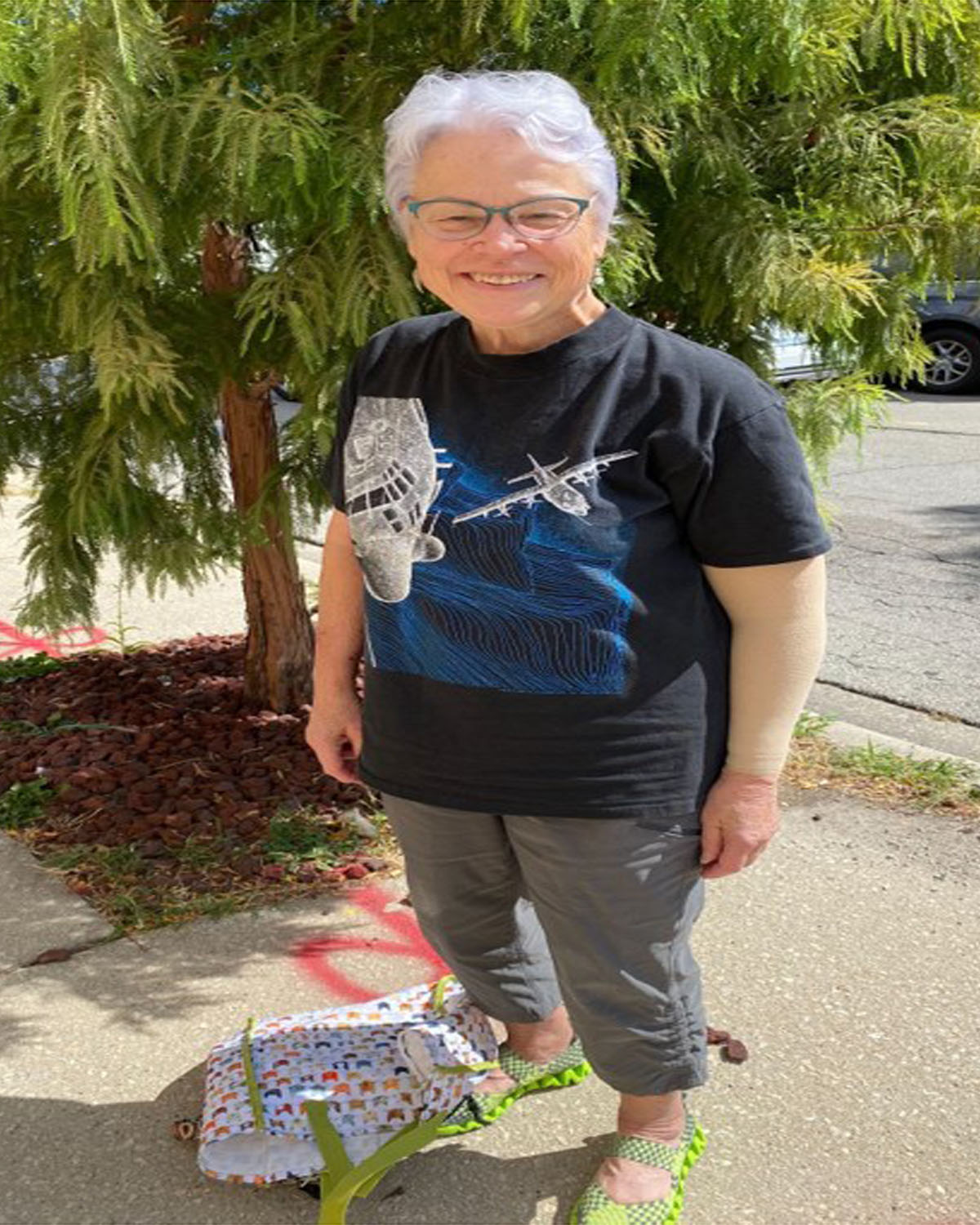
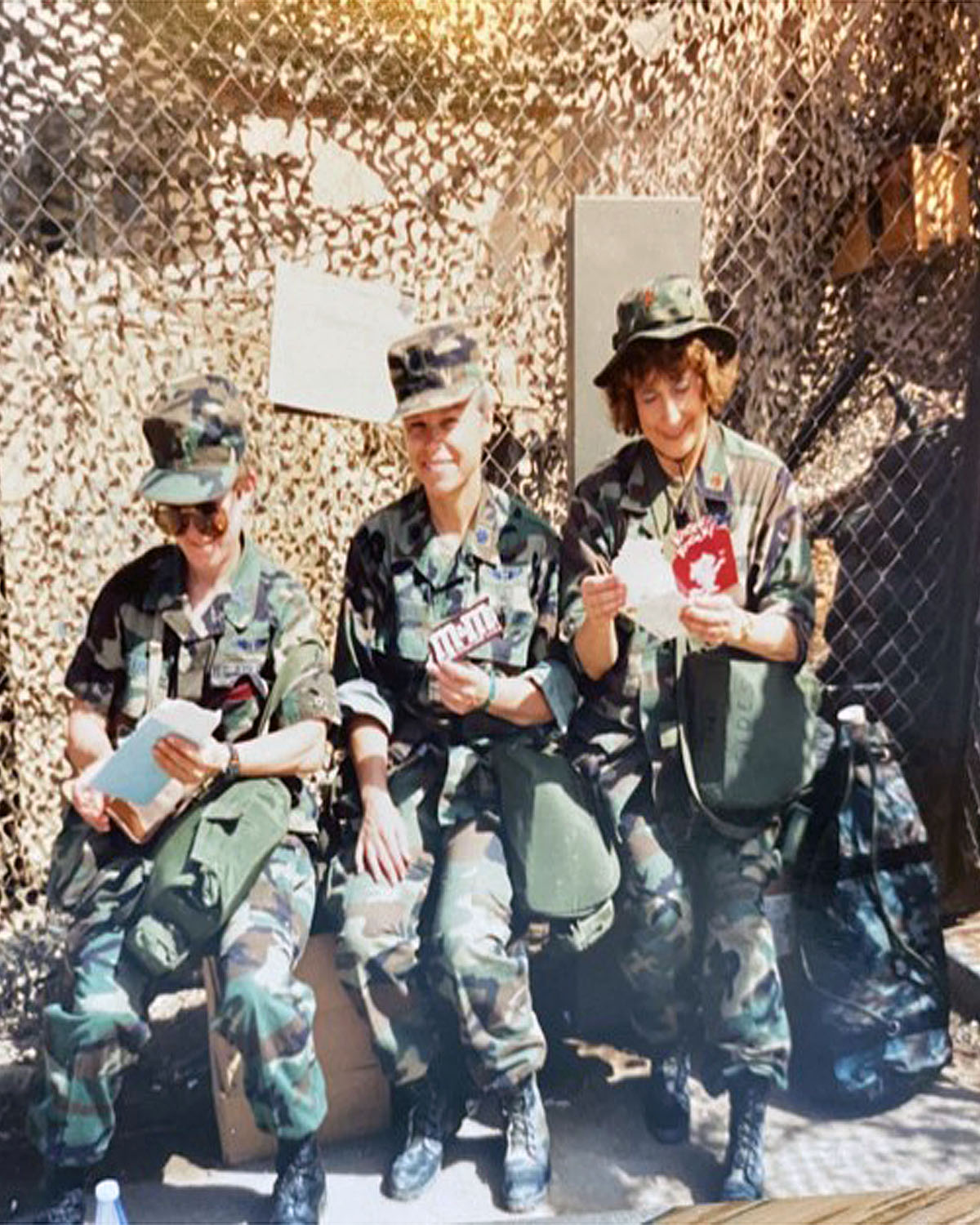
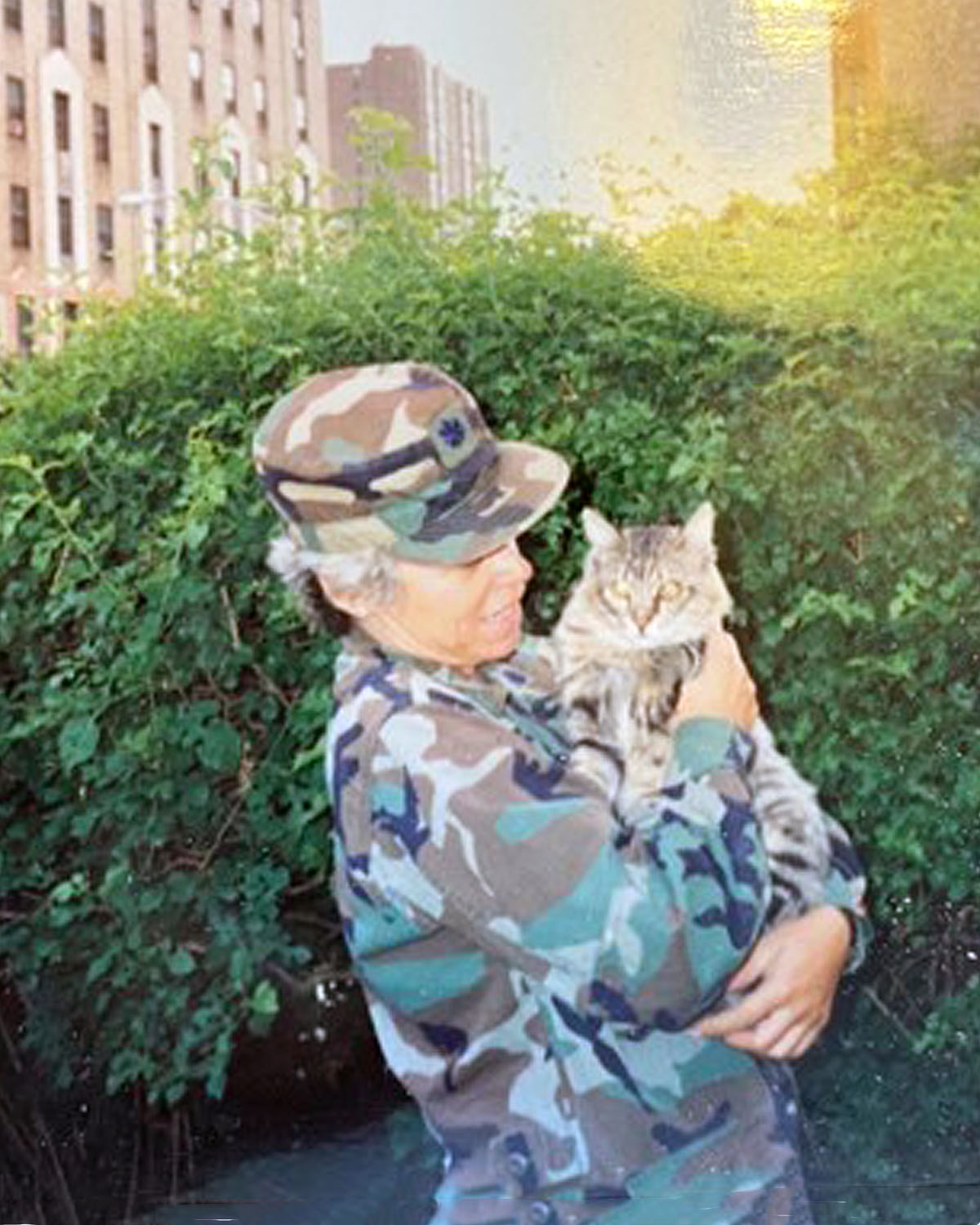
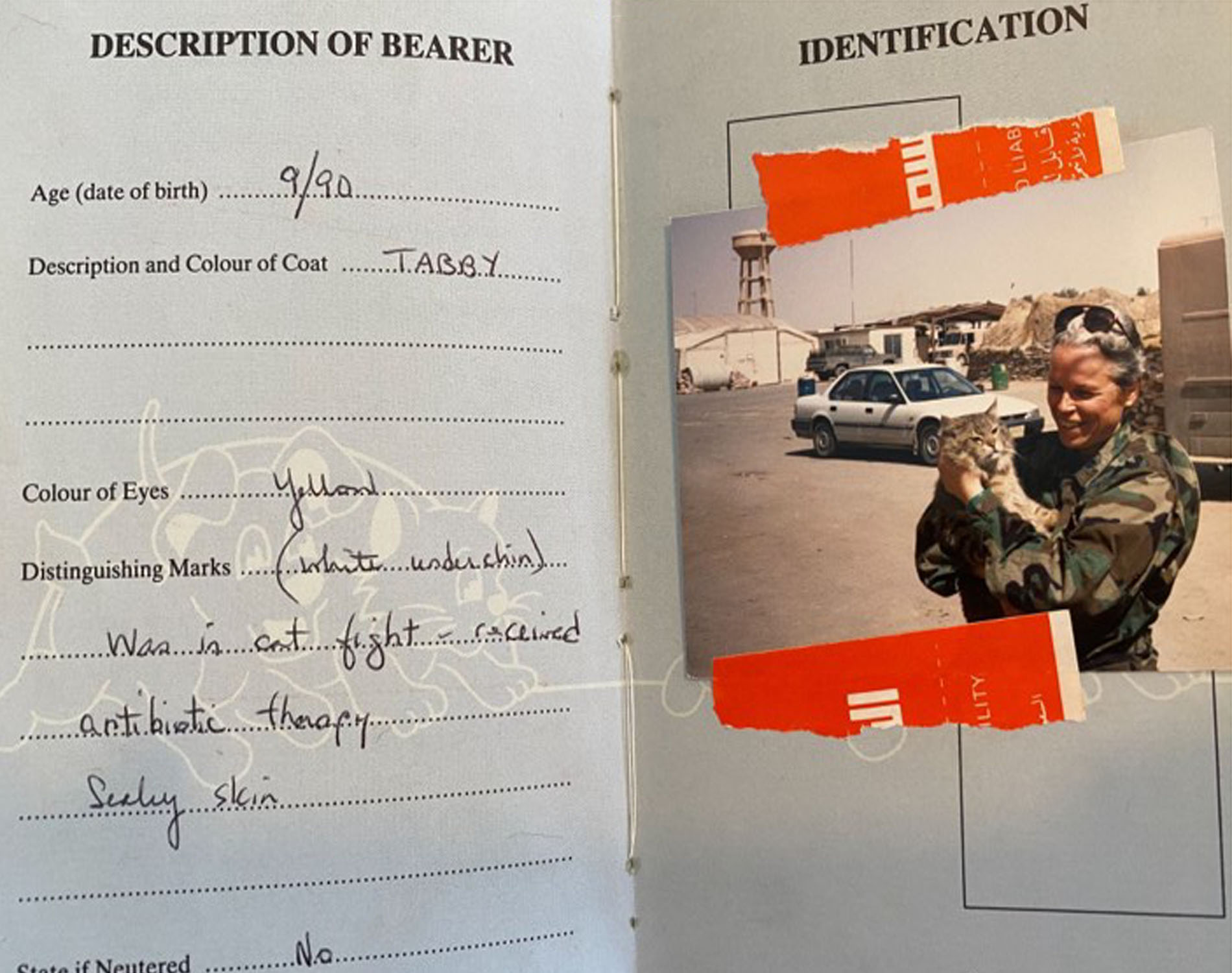
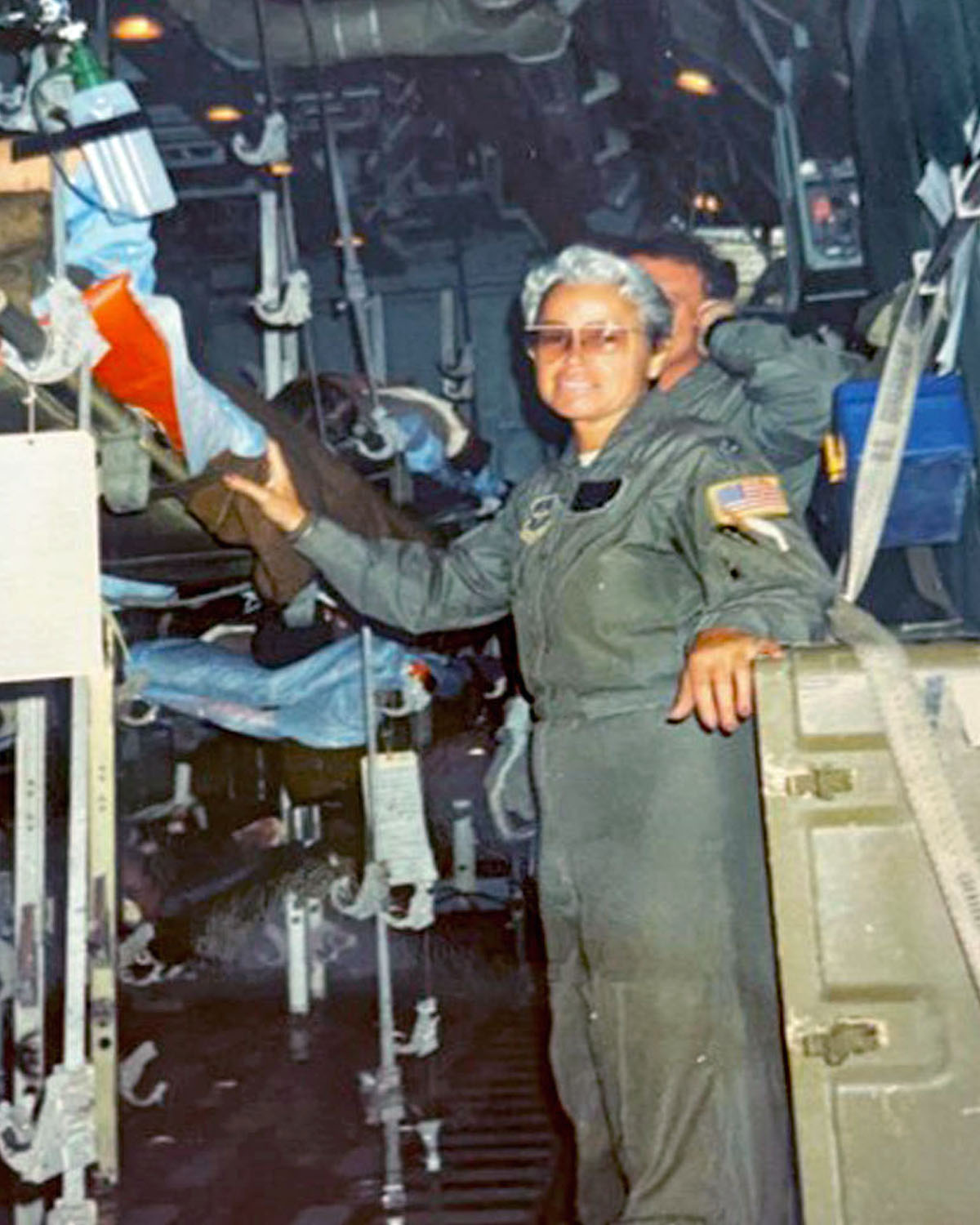
It was a chance encounter with a friend in the Illinois National Guard that set her on yet another path to helping. Her friend suggested she look into the National Guard. “It was right after Vietnam and I didnt want to go into active duty since my grandma was still alive, so I went into the Reserves.” Carol became part of the 63rd Aeromedical Evacuation Squadron at O’Hare Airport and began years of training for what was to come.
Carol said, “We trained, that’s what we did – how to transport patients on an airplane in a flight nurse position. It’s very different. You have to go to school down in Texas for 6 to 8 weeks, to find out what happens in the air and it’s not exactly intensive care but you have so many patients. Some planes held 74 patients, some held hundreds, so we tested and we practiced.” Carol learned to evaluate the type of patients they might be taking care of someday. Can they fly? Can they tolerate going up? Are they going to bleed too much? Can they breathe? All questions that would need to be answered as a flight nurse.
Eventually Carol chose to go per diem at her “day job” in the hospitals so she would be free to fly with the Reserves when needed. It gave her flexibility in 1992 when the Reserves were activated and sent to Desert Storm. It was time for all that training to pay off.
“They sent us for training and taught us how to shoot,” says Carol. “They issued us guns but asked us not to use them because we were so bad!” With a quick stop in Dover on their way to Riyadh, Saudi Arabia, they were issued all their chemical gear and gas masks, and other supplies. For Carol, a very petite 5 feet , it was a lot to handle. “When we were getting on the plane my friend told me I looked like a bag lady!”
Their first site of Riyadh was a huge tent city with the sound of scud missiles falling in the distance. While there was some danger, Carol says they didn’t think too much about it. Because the medical staff were operating from airplanes, they weren’t close to the action. “They were very careful where they put those planes,” says Carol. “Soldiers would be treated in the field hospital, then we’d get them ready to be put on board; most of them went to Germany on a C-141. We treated the enemy, too. I’m not even sure who they were. Mostly they didn’t speak English and didn’t understand us, and wouldn’t eat the food we had because they weren’t sure what was in it. They were not very cooperative.”
Eventually Carol and her flight crew were moved to Oman, where there was no war going on, but close enough to be called when needed. There was a lot of waiting in Desert Storm and Desert Shield. That may be one reason so many soldiers found themselves bonding with the stray cats and dogs in the camps and on the flight lines. For Carol, that was a continuation of her animal rescue efforts back home. “There were a lot of stray animals. Soldiers were feeding them. It took their mind off what they were doing and it gave them some companionship.” But when it came time to return home, the military wasn’t too keen on transporting stray pets, so Carol stepped in to help.
“We had to raise money and the hard part was getting the approval from the Saudi government. They aren’t big on animals either,” says Carol. “Trying to go to a government office in my uniform, they wouldn’t even talk to me because I was a woman. I always had to take a man with me to do the talking. And it’s hard to find a veterinarian there, but we had to have the animals looked at medically. We had to have the proper shots so they could get on an airplane.” And it wasn’t a military airplane, it was a commercial airline like British Air.
With the help of a Saudi contact person, Carol was able to help ship a lot of cats and dogs home, although she has no idea how many over the six months she was there. She did manage to ship her own feline friend, Radiac, home on British Air in a homemade crate. Radiac even had her own passport. And when British air crews saw the makeshift crate, they swapped it out for a good one at no extra charge.
Carol left the Air Force Reserves as a Lt. Colonel in 1992 and went back to nursing and rescuing animals. Now retired, she is as active as ever, helping friends and their pets get through life. “I don’t ever want to sit around and do nothing,” says Carol. “I do believe I won’t get covid because the good Lord is not going to let me. There’s too much to be done, and too many animals. I don’t want to leave them hanging.”
Thank you, Carol Stegall, for your life of service as a soldier and as a civilian. Enjoy your well-deserved day of honor as part of “Operation Her Story.”


